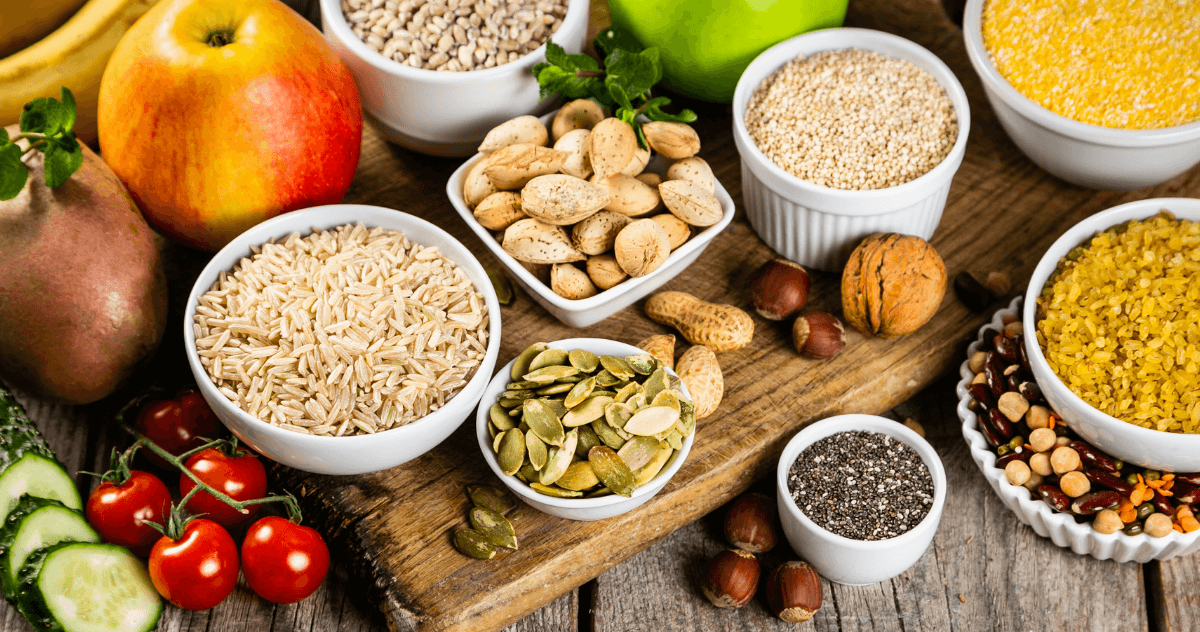Carbohydrates are a substance contained in food or a category of nutrients. You have carbohydrates that are in their natural form which are essentially grains such as wheat, rice, barley, millet, quinoa, etc, etc. Whole-grain carbohydrates mean that the three components of the grain are intact, namely the germ, endosperm, and bran. A processed grain has been stripped of the bran and the germ, leaving only the endosperm which is the least nutritious and turns into a simple sugar when consumed thus rapidly raising your blood sugar level and taxing your pancreas.
Examples of these simple stripped-down carbohydrates are white rice, and white flour products (bread, pasta, muffins, bagels, biscuits, etc). Examples of foods consisting of whole grains are brown rice, whole wheat bread, whole-grain pasta, etc, etc. Whole-grain foods contain fiber and bulk for good digestion and elimination, b-vitamins, vitamin E, phytonutrients, etc. Stripped-down simple carbohydrates are lacking the germ and bran and have very few nutrients left in the endosperm. Simple carbohydrates are bad for digestion and elimination because they tend to become like starch or paste that plaster the walls of your colon. They tend to cause your body to produce mucus in response to them thus congesting the sinuses and other mucus membranes. They also contribute to weight gain, type 2 diabetes, hypoglycemia, and other disorders.
The glucose in simple carbohydrates elevates blood sugar levels quickly then leaves the body quickly and drops your levels rapidly thus producing fatigue and irritability. Whole grain complex carbohydrates elevate blood glucose levels gradually and keep them at an even level for an extended period of time. The cells of your body I.e. your muscles and brain must have carbohydrates in the form of glucose for energy. The role of carbohydrates is to produce energy and especially for the brain which uses 20 percent of your body’s energy.
Your body must have two essential water-soluble vitamins that are not stored by your body in order to convert carbohydrates into glucose. They are b-complex and vitamin C. Because they are not stored by your body you must find daily sources of them in natural, non-proceeded foods daily. Fresh fruits and vegetables also can be a source of carbohydrates but they too contain fiber, bulk, and cellulose for digestion as well as enzymes and amino acids.
The current commercial diet industry has falsely labeled ALL carbohydrates as starchy and fattening. They advocate weight loss plans with high protein (meat, dairy, eggs) and low carbohydrates which are fake and harmful.
The uninformed natural health people think that so-called starchy foods turn into MUCUS. They do not. No food turns into snot in your body. The mucus build-up is a reaction that your own body produces. This was explained above. A natural well balanced healthy diet should contain some whole grains, lightly cooked (steamed or sautéed) vegetables, and raw green leafy salad supplemented with legumes, beans, peas….. This is the main vegan meal. Days should begin with fresh organic fruits, superfood smoothies, whole-grain cereal, water, herbal teas…. I took the time to write all of this because there is too much misinformation regarding this science.
Understanding Carbs


